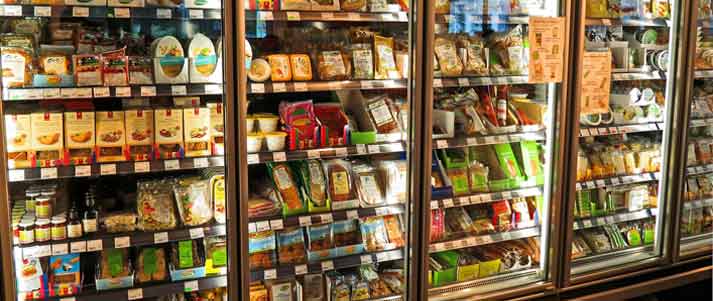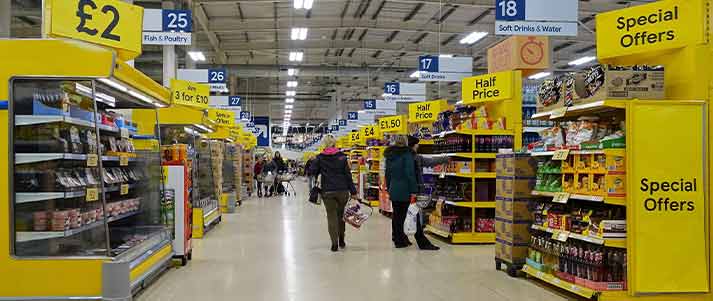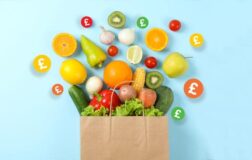9 tricks supermarkets use to make you spend more money
Did you know supermarkets employ some cunning tactics to make you spend more money? Here's how they do it and how to avoid being duped.

Credit: Monkeyoum, WAYHOME studio – Shutterstock
So, you thought the supermarkets were on your side, helping you save extra pennies whenever they can?
While there are lots of great deals that genuinely could save you a packet, don't forget that supermarkets are out to make money from you, plain and simple.
From dodgy money-saving offers that don't actually save you money to multi-buys that cost the same as buying individual items, supermarkets use sneaky marketing tricks to get their hands on your hard-earned cash.
Remember to only buy food that you need to avoid the risk of it going to waste. Arm yourself with the facts below and think twice before grabbing that special offer.
Sneaky supermarket marketing strategies
From a clever supermarket floorplan to not-so-affordable deals, here are the sneaky supermarket secrets they don't want you to know:
-
Floor layouts that make you spend more

You wouldn't believe the amount of time and effort that goes into the supermarket layout – often with the intention of encouraging you to spend more cash.
Here are just a few of the ways they might get you:
- Playing slow music to make you feel less rushed and happy to spend more time (and money) in store
- Putting healthy fruit and veg at the front so you shop there first and don't feel guilty about the less healthy foods that go into your basket later
- Placing essential items at the back and far away from each other so you have to look for them (and come across a few things you don't need but want to buy along the way)
- Keeping eggs in strange places so you end up on an egg hunt (and not the Easter kind)
- Stacking more expensive products at eye level and stocking popular combinations (like tortilla chips and salsa) together to encourage you to get both
- Covering tills with last-minute 'essentials' to encourage impulse buying.
Some supermarkets have even been known to lay smaller floor tiles along the aisles that have more expensive stock, so the sound of your trolley wheels speeding up will encourage you to slow down and spend longer looking at the shelf items. Mindblowing stuff, right?
-
Multi-buy offers with minimal savings
You'll often see multi-buy deals such as three for two, or two for a price that's cheaper than two individual items bought separately.
While you can find good deals like these, too often these offers are one of the many supermarket marketing tricks that don't fully work in your favour.
Maybe you only need one of the items. Buying the second for a discounted price might be tempting, but if it goes off before you plan to eat it, it will be a waste of food and money.
You might also find you could save money by getting a different product that isn't included in the promotion.
Take your time, look at individual prices and compare them before you put something in your basket.
-
Expensive meal deals
Meal deals can be tempting, but it's worth being aware of how much money you could save by making your own lunches at home.
A good example is the cost of sandwiches in meal deals.
Let's use the tuna and cucumber sandwich in the Tesco meal deal as an example. It costs £2.20 at the time of writing. Given that the overall meal deal costs £3.60 (or £4 without a Clubcard), you might feel like you're getting a good deal by getting a drink and snack as well.
However, when you break down the costs of making the sandwich, it no longer sounds like such a good deal.
At the time of writing, an 800g Tesco loaf of white bread costs £0.74, a 145g tin of Stockwell & Co tuna chunks in brine costs £0.55 and a whole cucumber costs £0.89. This means that you could buy the ingredients for at least two tuna and cucumber sandwiches (with some ingredients leftover) for around the same price as the individual sandwich in the meal deal.
As such, meal planning and making your own lunches from scratch could be a more effective way to save money on food.
Although they're not usually the best way to save money, meal deals are very convenient, so there might be times when you decide to buy them. For times like these, we've compared the best meal deals. -
'Top deals' that aren't as good as they sound

Credit: 1000 WORDS - Shutterstock
When walking around your supermarket aisles, it's likely you'll be inundated with lots of brightly coloured signs for 'top deals', 'lowest prices ever' or other not-to-be-missed deals.
These are supposedly products that have been reduced to a cheaper price than normal. However, have a good look at what the original price of the item was to make sure it really is a good saving.
For example, with Clubcard or Nectar prices, it's worth double-checking that they are the best deals available.
In July 2023, Which? looked into how loyalty card offers at Sainsbury's and Tesco compared with deals at other supermarkets. They found that, while the Clubcard and Nectar prices were cheaper than Aldi and Lidl on some items, that wasn't always the case.
So, even if something looks like a top offer at one supermarket, it's still a good idea to compare prices elsewhere to make sure you are getting the best deal you can.
-
Leaving outdated promotions on display
A BBC investigation in 2017 found that Tesco had been particularly bad at keeping their displays up to date, leaving promotional branding up after deals have already ended.
The result of their experiment was that they were overcharged for their purchases at 33 out of 50 stores they visited. We're sure Tesco aren't the only offender, either.
Make sure you always check your promotion has been deducted at the check-out, and if not, show the display to a manager and ask customer services for your money back – that's your right as a customer.
-
Misleading packaging
The fancy packaging of that 'high quality' bacon can convince you it's going to be much nicer, but will you really be able to taste the difference?
The packaging on supermarket premium brands is designed to tempt you into parting with those few extra pennies. But, in reality, you might just be spending that extra cash on the cost of said fancy packaging.
Downshifting your weekly shop to value brands can potentially save you hundreds each year. Imagine what you could buy with that.
STS reader David Hamilton, from the University of Sunderland, also suggested staying clear of the 'to go' sections:
Never buy food from the food-to-go section as they have the same food in much larger portions at a cheaper price in other areas of the supermarket. For example, pasta pots might be £2 for a small tub but in the main shop they'll have a pot double the size for £1, but maybe without a fork included.
-
Encouraging shoppers to bulk buy
Thanks to wholesale supermarkets, it has been drilled into us that buying bulk-sized products over smaller items will automatically involve a saving.
Buying a massive tub of butter rather than a small one can seem like a good deal. But some supermarkets might take advantage of that assumption and price the larger tub higher than two smaller tubs which combined have the same weight.
It's worth checking before buying anything.
You might also find that it's tricky to work out the weight-to-price ratio if one product is weighed in grams and another in kilograms. Again, take a moment to check things like that before adding the products to your basket.
If supermarkets can use tricks, so can we. Did you know you can use supermarket cashback apps to get money back? -
Making comparisons impossible
This might totally go against your best instincts, but while packaged goods do normally cost more than loose items, this isn't always the case.
Supermarkets may rely on the fact you think this way, and as a result, make it more difficult to compare items. This is particularly the case with fresh produce like fruit and veg. For example, packaged cucumbers could be priced per item, while the price for loose ones might be displayed in grams.
-
Online shopping substitutions

Credit: Kalamurzing - Shutterstock
Unfortunately, supermarket tricks aren't just for in-store shopping. They also use them for your online food shop – nowhere is safe.
For example, you'll already be well acquainted with the sidebars they use to bring up similar items they think you might be tempted to part more cash on, but you'll almost never see value brand items in there.
Also, watch out for the 'allow substitutes' box. Checking this means they can change parts of your order if they've sold out, and replace it with something else.
Some people report being given more expensive items as replacements and only getting charged for the cheaper version (neat!). However, some have been known to throw in a more pricey replacement and charge you extra.
If you notice that something has been substituted when your delivery arrives, some supermarkets will let you refuse it at the door and get a full refund.
The smartest move here would be to contact the supermarket customer service and find out what their policy on this is.
By being savvy to these supermarket strategies, you can watch out for duff deals and save yourself a few quid.
Now you know the tricks to avoid, here are some supermarket money-saving tips to try out.








